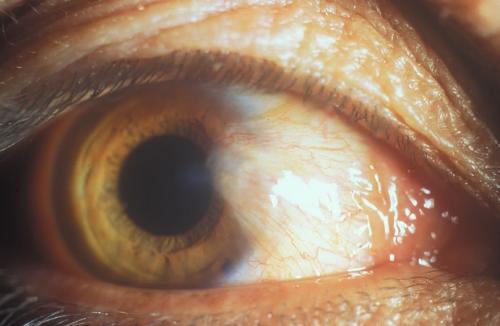eye irritation, white growth on cornea, diminished vision?Pterygium
By praveenjena
@praveenjena (1304)
India
March 18, 2008 1:23pm CST
do you know what can happen if you experience the above symptoms.
this condition is known as Pterygium.
It is a fleshy tissue that
grows in a triangular shape over the
cornea .
most commonly occurs
on the inner corner of the eye, with
its apex towards the pupil, but also
may appear on the outer corner
cause:Long-term exposure to sunlight, especially
ultraviolet (UV) rays, and chronic eye irritation from dry; dusty conditions seem to
play an important role.
A conservative approach is recommended for most people. Artificial tears may provide comfort, relieving the sensation of a foreign body. Occasionally, a lesion becomes mildly inflamed; in this case, a mild optical decongestant or, rarely, an anti-inflammatory agent may be prescribed.
Surgery is the only way to remove a pinguecula or pterygium, but the results can be disappointing. Even with modern techniques, the recurrence rate is often as high as 50 to 60 percent. Surgery is not recommended unless a pinguecula or pterygium is causing significant problems.
Three types of problems may warrant surgery.
First, vision may be affected by a pterygium large enough to involve the cornea's center visual zone or that causes astigmatism. Surgery may be able to improve the clarity of the optical center and limit excessive or irregular astigmatism.
Second, a pterygium may be unsightly and cosmetically objectionable. Surgery can reduce the size of a fleshy pterygium, but complete elimination is often not possible.
Third, pterygium may cause excessive discomfort due to dryness or a chronic foreign body sensation. Surgery usually improves comfort, but sometimes irritating symptoms may remain.
Prevention of Pterygium
There is no known method of preventing a pterygium. However, a prudent precaution is to protect the eye from undue sun exposure by wearing protective eyewear with good ultraviolet blockage, or at least a rimmed hat. Fortunately, most cases of pterygium do not constitute worrisome eye disease, and surgery usually is not necessary.
No responses





